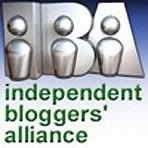The article profiles MomsRising.org, co-founded by Joan Blades of MoveOn.org fame, and co-author of "The Motherhood Manifesto." In it, a group of mothers gather to watch the documentary of the same name.
The mothers all held jobs outside the home (pastry chef, singer in a band, lawyer, hairstylist, nanny) and many had flexible schedules to make it easier to care for their children. Like hundreds of others who have gathered over the last nine months, they huddled around a television to view “The Motherhood Manifesto,” a documentary about the obstacles still facing working mothers, including many of those in the room.
“I’m home with a 2-year-old, so there may be an interruption,” said Ms. Clark, 35, a social worker with two children and a three-day-a-week office job, as she recounted the viewing party the next day and talked about how she related to the mothers in the movie. Like them, she said, her financial situation felt precarious. She wasn’t sure she could count on keeping her part-time position next fall.
“These are issues I’m aware of and feel strongly about,” she said of the movie’s focus on subjects like universal child care, maternity and paternity leave, and workplace discrimination against mothers. That is why she joined MomsRising.org, the mother’s advocacy organization that made the documentary. “It’s a great opportunity to connect with friends — mothers — and together have a chance to change things,” she said.
So what has this to do with fashion and style? Hell if I know. The style section can be kind of catch all. In some papers there's a Lifestyle section. That would make a modicum of sense. But if you don't know it, the marginalization of all things female into the fashion or home & garden genres is as old as the hills and apparently shows no sign of changing. Not at the paper of record, at any rate.
I remember years ago reading something by Gloria Steinem -- I don't remember which book or article it was -- in which she recalled the early days of Ms. She described the travails of trying to find advertisers who understood that Ms. was not a typical women's "feature" magazine. Cosmetics companies were constantly complaining about content that did not support their product. The women in their pages just weren't glamorous enough. Ms. simply had no niche. It was for a female audience, but it wasn't about home-making and it wasn't about fashion and beauty. It didn't fill the space between ads with quizzes about your sex appeal. It was about issues. Women just weren't supposed to care about issues. We were supposed to care about make-up and cleaning products. Got it? Make-up. Cleaning products.
It's a good article. I recommend it. Although the giant Ralph Lauren video fashion show embed is a trifle distracting. Here's another snippet:
Using data and personal stories of mothers who have been discriminated against in the workplace, the film emphasizes that mothers are less likely to be hired, will make less money, and are more scrutinized for wrongdoing than either single women or men. The reason it cites: There are not enough family-friendly policies in place to help parents.
The seeds for MomsRising were planted in 2004, when Ms. Blades read a book about women and politics by Kristin Rowe-Finkbeiner, 36, a married mother of two. Ms. Blades, 51, said she was astonished to find that many younger women didn’t identify with feminism and by the data showing vast disparities in incomes between mothers and fathers, with single mothers faring particularly badly.
And another:
At many house parties, the issue that has generated the most discussion is something that activists call “maternal profiling.” That is using information about a woman’s status as a parent to make managerial decisions, like whether to hire her and how much to pay her.
They are particularly moved by the story of Kiki Peppard, a Pennsylvania woman who, 12 years ago, was refused office jobs after employers found out she was a single mother of two. Ms. Peppard is a rallying point for many women, who are led by the film to believe — mistakenly — that such discrimination is legal. According to two experts in workplace law, it is not.
But many studies indicate that, legal or not, a woman’s status as a mother hurts her at work.
In one study, to be published next month in the American Journal of Sociology, Cornell researchers sent out résumés and cover letters to real employers for hypothetical job applicants. All had the same credentials, but the packages included subtle cues to indicate that some of the applicants were parents. (For example, a résumé might note that an applicant was an officer in a parent-teacher association.)
The goal was to find out if employers are less likely to pursue an interview if they find out that a candidate is a parent, said Shelley Correll, an associate professor of sociology at Cornell, who helped conduct the study. And the answer was “yes for mothers, no for fathers.”









0 comments:
Post a Comment